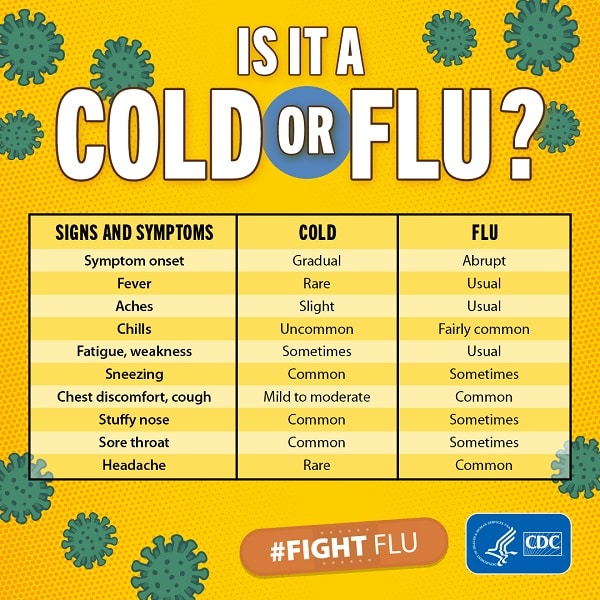

How do I know that I have COVID-19 and not a cold or the flu?
A fever, runny nose, cough, sore throat, loss of taste and smell – these are the most commonly known symptoms of Covid-19. However, some of these are also the symptoms of the common cold and influenza, too. So, if you’re sniffling at home right now, panicking and Googling to find out what are the differences between the symptoms of Covid-19 and the common cold, let’s see if we can help.
Follow us on WhatsApp for the latest updates: https://bit.ly/AsiaMDWhatsAppEN
What causes Covid-19, the cold and the flu
Covid-19 is a disease which is caused by the novel coronavirus named SARS-CoV-2. It is the seventh known coronavirus to cause diseases among humans, and the third which originated from animal origin. The first two were SARS-CoV and MERS-CoV, which were thought to have originated in bats. SARS-CoV was then thought to have spread to humans from infected civet cats and MERS-CoV was spread by dromedary camels. It is thought that SARS-CoV-2 probably originated from bats as well, but it is still not known how exactly it had spilled over from bats to humans.
The common cold, on the other hand, is caused by other coronaviruses which results in mild to moderate upper-respiratory tract illnesses, The common cold can also be caused by other viruses, the most common being rhinoviruses.
The flu, which is short for influenza, is caused by influenza viruses. There are four influenza viruses: A, B, C and D. Human influenza A and B viruses are what go around every “flu season” during autumn and winter in the United States, and are capable of causing epidemics. Influenza C causes mild illness. Influenza D mainly circulates among cattle and does not affect humans.
Symptoms of Covid-19, the cold and the flu
According to the Centers for Disease Control and Prevention (CDC) in the United States, Covid-19 seems to spread more easily than flu and causes more serious illnesses in some people. It can also take longer before people show symptoms and patients can be contagious for longer. Symptoms of the common cold are usually much milder than that of the flu and generally do not lead to complications.
| Disease | Possible symptoms (not an exhaustive list) |
| Covid-19 |
Symptoms can present within two to 14 days after exposure to the virus. |
| Common cold |
Symptoms can present within one to three days after exposure to the virus. |
| Seasonal influenza |
Symptoms can present within one to four days after exposure to the virus. |

Differentiating between the signs and symptoms of a cold and a flu. Source: Centers for Disease Control and Prevention
Asymptomatic Covid-19 patients
The tricky thing about Covid-19 that is different from the common cold and the flu is that one can have it without showing symptoms. That’s what is known as an asymptomatic infection. It is estimated that 40-45% of patients in the US are asymptomatic and still spread infection. A US study also found that at least half of new SARS-CoV-2 infections was estimated to have originated from exposure to asymptomatic Covid-19 patients.
Singapore authorities have not released official figures, but a study done by the National Centre for Infectious Diseases (NCID) in June 2020 said that an estimated 23% of those infected were asymptomatic.
This means that without a diagnostic test to detect Covid-19 virus, antigen or its serology response, it is impossible to confirm whether or not one has Covid-19.
Moreover, some of the symptoms of flu and Covid-19 are similar, making it hard to conclude which infection one has based on symptoms alone. When in doubt, please consult a doctor in Singapore at a Public Health Preparedness Clinic. The doctor will assess and advise you accordingly.








0 Comments